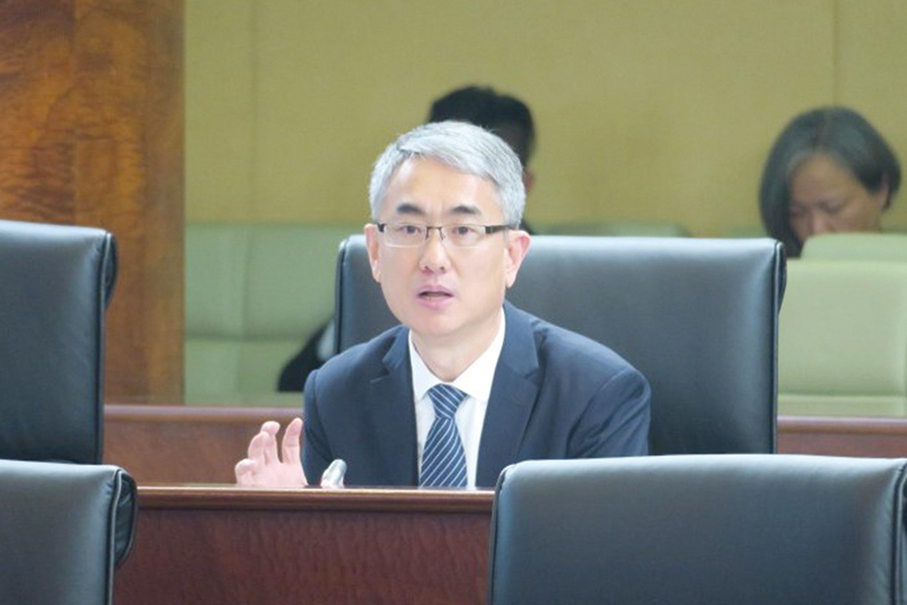Editorial
When President Xi Jinping met with International Olympic Committee (IOC) President Thomas Bach in Beijing earlier this week he reaffirmed that China is all set to deliver a “simple, safe and splendid” Winter Olympics next month.
Bach, who won a foil fencing team gold medal for West Germany at the 1976 Summer Olympics in Montréal, thanked China for the “excellent and smooth” preparatory work for the Games, saying that he is fully confident that Beijing 2022 will be a “safe, smooth and successful” event.
Interestingly enough, each described the Games, which start next Friday, with three English words that all start with an “s”. Not only that, both also chose the same word – “safe”.
Of course, that’s no coincidence. It’s pure realism. Olympic Games, where ever they are being held, must be safe. Hospitality, solidarity and togetherness, which are three words which are inherently connected with the Olympic Movement, are all inconceivable without the host city ensuring the best possible degree of safety for all the Games’ participants – athletes, officials and spectators.
Concerning safety at the Olympics, I do have a very personal experience that haunts me still today: the Munich Massacre, an attack during the 1972 Summer Olympics in the Bavarian capital by the Palestinian terrorist group Black September, who took nine members of the Israeli Olympic team hostage, after killing two. The bungled response by the police resulted in 17 fatalities including 11 Israeli athletes and coaches who lost their lives in Germany of all places.
I was a young student at the University of Valladolid in northern Spain at that time. I read a front-page article about the attack in the city’s El Norte de Castilla newspaper while having breakfast in a café on the city’s Plaza Mayor. I still remember the word “rehenes” (Spanish for “hostages”) splashed across the page. The news became quickly the talk of the town, and I was frequently asked by Vallisoletanos (the demonym for people from Spain’s former capital) how this could happen in Germany of all places. Of course, I had no answer but I felt deeply shocked and ashamed.
Despite the tragic loss of life, the organisers of the Munich Olympics took the right decision to go ahead with the Games. Anything else would have meant to cave in to terrorism.
Ever since I have been convinced that the exalted Olympic ideals of solidarity, hospitality and togetherness are pointless without individual and collective safety – the most important thing in life.
That’s why I am disappointed (to put it mildly) by Western media outlets’ gratuitously negative coverage of the Beijing 2022 preparations, such as the strict security measures implemented by the Games’ organising committee, which include a closed-loop management system to ward off the novel coronavirus, and Western governments’ ongoing attempts to politicise the Beijing Winter Olympics.
Terrorism was the enemy at the Munich Summer Olympics in 1972. COVID-19 is the foe at Beijing 2022. Both are certainly very different kinds of threats – but both terrorism and a pandemic are threats to human life that require extraordinarily stringent security measures to keep them at bay.
On the political front, the US-initiated “diplomatic boycott” of the Beijing Winter Olympics has turned out to be a washout. According to the US news portal POLITICO, only nine other nations have joined Biden’s ill-fated initative, accounting for just around five percent of the 193 UN member states. French President Emmanuel Macron quite rightly dismissed the boycott as “insignificant”.
The Olympics should never be allowed to be politicised. I agree with the IOC’s position of “political neutrality”. This includes the inherently debatable nature of human rights, which involves cultural values, religious creeds, political convictions and socio-economic conditions which, as we all know, aren’t the same globally and whose also very different interpretations are in constant flux.
I also concur with the IOC’s decision last year to add the aim of “togetherness” to the traditional Olympic motto of going faster, aiming higher and becoming stronger (citius, altius, fortius in Latin). We should all try to achieve global “togetherness” (simultas) beyond our different political views and systems.
I am upbeat about the prospects of Beijing 2022 in which some 3,000 athletes from 90 countries and regions will compete. Soon afterwards, Beijing will host the Winter Paralympic Games which our newspaper will cover as well as a matter of course.
Growing up in Lower Saxony near the Harz mountains, I did practise daredevil sledging every winter – it’s a wonder I didn’t break my neck, and I also did a bit of skiing and skating. I am fond of watching bobsleigh competitions. Jamaica’s legendary “underdog” bobsleigh team is competing in Beijing after qualifying for the Olympics for the first time in 24 years. The team to watch!
An ancient German saying – apparently it’s actually Yiddish – wishes people good luck by urging them to avoid “Hals- und Beinbruch” (“neck and leg fracture").
Well, that’s what I wish all the Olympians in Beijing.
– Harald Brüning









